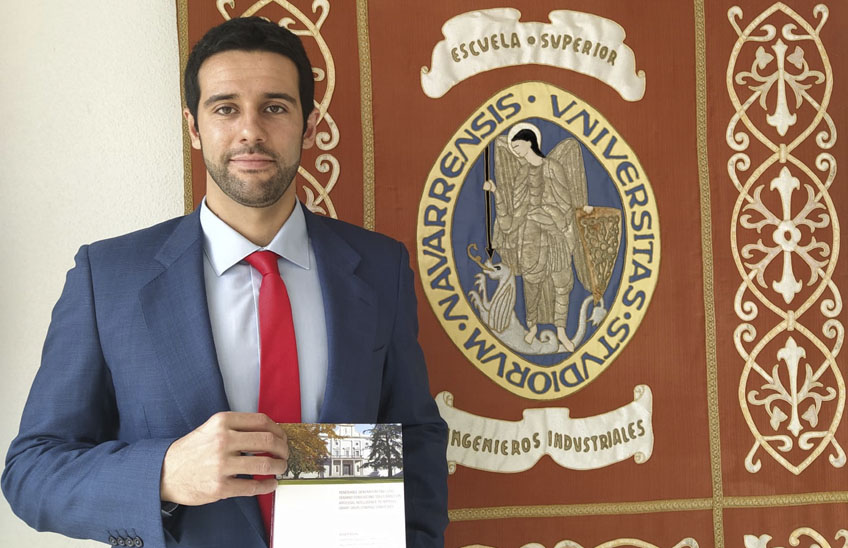News
LATEST NEWS AND EVENTS FROM THE SCHOOL OF ENGINEERING
Artificial intelligence to support the implementation of renewable energy generators
A doctoral dissertation is presented at Tecnun on artificial intelligence applied to microgrids.

PhotoCommunication Service/
07 | 06 | 2021
D. in Applied Engineering by Tecnun Fermín Rodríguez Lalanne has presented his thesis on artificial intelligence applied to microgrids. Specifically, the work of this engineer explores three tools for predicting renewable generation and energy demand based on artificial intelligence to improve the control of smart grids.
"One of the main current problems with renewable energies is their high level of uncertainty, Degree , because it is not known precisely how much energy they will inject into the system at any given moment," Rodriguez points out. The goal of his thesis, successfully achieved, is "to be able to tell the different electricity system operators how much energy is going to be generated in the next 15 minutes, based on data from the last 24 hours, in order to favor the control of the network electricity or microgrid".
The first of the tools developed has as goal the prediction of different variables that allow to know what will be the production of renewable generators and the energy demand of the loads. These tools are based on algorithms provided by artificial intelligence, taking into account only information from the location where the prediction is to be made.
The second aims to use data not only from the location goal where the prediction is to be made, but also from other locations close to the points where generation takes place, to estimate what the future energy production will be.
The third tool, tool , seeks to establish confidence intervals for the predictions made in the two previous tools. "We must bear in mind that it is just as important to make an accurate prediction as it is to establish a range of uncertainty within which the prediction will be made," continues the young engineer.
Both to meet the requirements requirements for renewable generators to connect to the conventional network , and to improve the control that governs the microgrids, this thesis studies the possibility of providing greater intelligence to the generators and loads, predicting what their status will be in the near future.
This would allow renewable generators connected to the traditional network to compete in the intraday energy market, as well as to offer the system auxiliary services such as frequency regulation, reactive power contribution or black start. Likewise, microgrids could see their controls optimized, since it would allow them to know, with a certain Degree of uncertainty, what their status will be in that horizon and act accordingly.
Looking to the future, the objectives are clear, as pointed out by researcher at Ceit, the technology center where project is being developed. subject The first is "to achieve greater precision for finer control, and the second is to extend the time horizon so that the tools can be used by operators for all kinds of activities," he concludes.Communication Service
